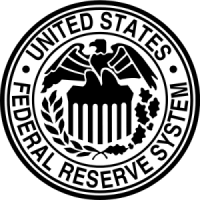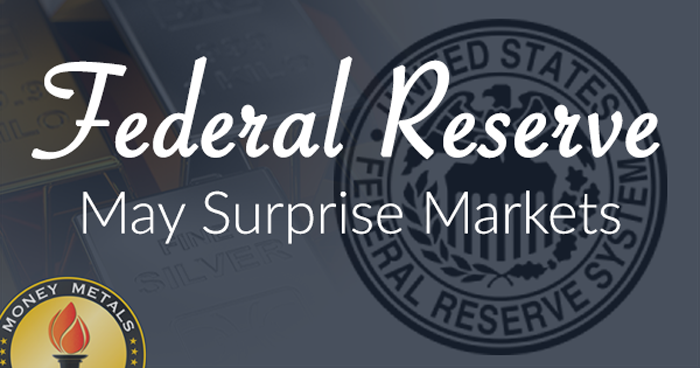The Federal Open Market Committee meets again this week, and investors will be watching the announcement that follows closely. The consensus remains for the Fed to begin raising rates mid-next year. Many expect Fed officials to provide more specific guidance.
When the financial crisis hit in 2008, the Federal Reserve launched a series of stimulus programs and bailouts. Now those initiatives are being scaled back (but not reversed). In October, the Fed suspended Quantitative Easing, its unprecedented bond purchase program, and most expect the end of the Zero Interest Rate Policy sometime around the middle of 2015. We may even get more clues as to the timing this week.
 |
The consensus could certainly be right, but recent developments in markets and the economy add weight to arguments for the Fed to once again reverse course and resume stimulus.
Here are a few reasons why investors may get surprised this week or at another FOMC meeting announcement in the coming months:
Disinflationary pressure is building. The U.S. dollar has been on an epic run higher over the past 6 months as the Fed decelerated stimulus while other major central banks accelerated. Policymakers are deathly afraid of little to no inflation, and possibly even bouts of deflation. They feel a lack of inflation hurts the competitiveness of U.S. exports, and inflation helps ease the crushing burden of government debt and entitlements.
Falling oil prices spell doom for the “Shale Miracle.” Lower energy prices are not only deflationary. If sustained, they are likely to devastate one of the very brightest spots in the U.S. economy. Estimates put the cost of production for a barrel of shale oil at $70 - $95. If crude prices stay below $60, exploration, drilling, and production activity will fall precipitously. A fact that won’t be lost on Fed officials.
Employment remains low. The percentage of the total U.S. population with jobs is lower than it has been since women began entering the workforce in large numbers in the 1970s. The heavily managed headline unemployment rate has fallen, and Fed officials may point at that and publicly declare they are meeting the central bank’s dual mandate for stable prices and maximum employment. But given the real employment picture, they may be privately worried about how to kick start genuine growth. And there is no indication anyone in charge there has abandoned the Keynesian core "principle" that artificial stimulus begets growth.
Money Metals Exchange Now Accepts Bitcoin Payments
The latest enhancement to the MoneyMetals.com website is the ability for customers to order and make payments using Bitcoin.
 |
|
| Disclaimer: Bitcoin is NOT a tangible asset. This image is used figuratively. |
Customers choosing the “Bitcoin” tab at checkout will find the Bitpay service enabled. Very soon Coinbase service will also be available -- a second convenient option. Simply select your preference and place your order. After locking in your order, you will be immediately prompted to log into your Bitpay or Coinbase account to transmit the payment.
Money Metals must pass along the modest fees (1%) associated with accepting Bitcoin payments and converting them into cash, enabling us to simultaneously acquire replacement inventory from our mints, refineries, and wholesale partners whenever we sell metals to customers. You could say that our intent mirrors that of the customers who take advantage of this new option: to exchange Bitcoin for physical precious metals.
The cryptocurrency has shown extraordinary volatility and has, at times, behaved like a penny stock with sudden, dramatic moves both up and down. While innovative and private, Bitcoin lacks tangible backing (like the dollar) and is reliant on technology. Notwithstanding the passion of its proponents, Bitcoin is not currently a suitable vehicle for holding working capital, and it remains a highly speculative currency.

About the Author:
Clint Siegner is a Director at Money Metals Exchange, a precious metals dealer recently named "Best in the USA" by an independent global ratings group. A graduate of Linfield College in Oregon, Siegner puts his experience in business management along with his passion for personal liberty, limited government, and honest money into the development of Money Metals' brand and reach. This includes writing extensively on the bullion markets and their intersection with policy and world affairs.





